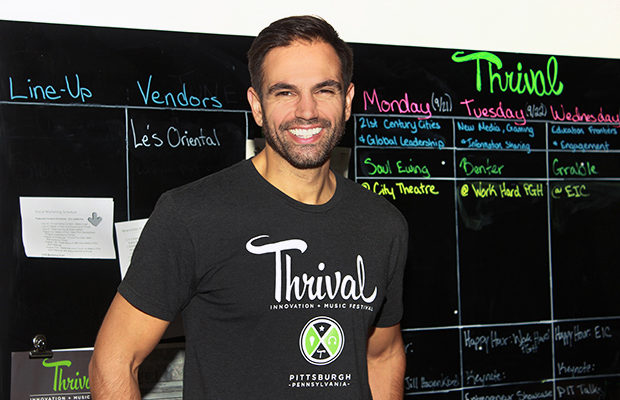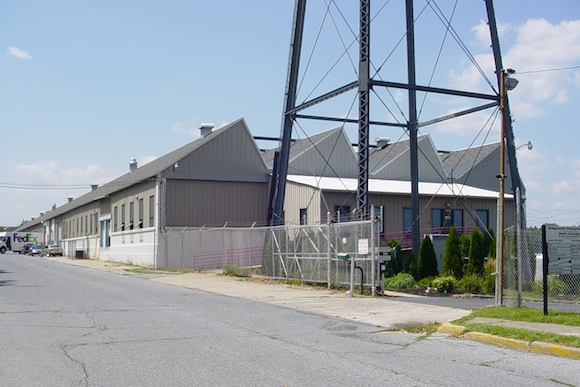After graduating high school in 2000, Bobby Zappala went off to Duke University. Everyone figured he was gone from Pittsburgh for good. But working in politics in Washington D.C., proved unfulfilling.
“I wanted to do things that changed the world,” he recalls. “I got a little sick of the political theme. I was disenchanted by the way the federal government operated and decided I would rather go into the private sector, make some money and do something good with it…generically speaking, have an impact.”
Zappala chose to return to Pittsburgh, entering University of Pittsburgh School of Law in 2006. Everywhere he went around town he saw new residential, commercial and retail development. It was a different Pittsburgh from the one he had left, and something he wanted to be a part of.
“I’m a second generation Italian-American,” he says. “My grandparents came here from Italy and ended up in Pittsburgh because of my grandpa’s multi-lingual abilities, working in sales in the steel industry. There’s a lot of Pittsburgh pride in my family, and that’s pretty important to why I’m back here now.”
Zappala took a job at Buchanan Ingersoll & Rooney, a large law firm headquartered in Pittsburgh. It was during this time that he and his friends started throwing parties on their lawns to get to know other people in the increasingly vibrant community.
“We were all looking for new networks and to find out everything that was happening in the city,” he recalls. “The benefit of Pittsburgh is the size: everyone is two degrees from everyone else.”
By the time he graduated law school in 2009, about 1,000 people were attending these parties a few times each summer, so the friends decided to incorporate as a nonprofit. They donated the money they raised to charities like the UPMC Hillman Cancer Center.
“We weren’t going to cure cancer though,” explains Zappala, so they changed their strategy to catalyze more of that vibrant, entrepreneurial energy they were seeing in the crowd. They started charging $20 for day-long events featuring live bands, beer sponsors and food trucks. “It was a fair price for a fun Saturday, and all the money raised in excess of covering costs we would invest back into early-stage startup ideas in Pittsburgh.”
Thrival, as it would eventually be called, has since grown into a week-long music and innovation festival with over 11,000 attendees, more than 100 speakers, 50 strategic planners, 40 live music performances, over 35 innovation-focused programs, and a dozen host locations. The 2016 incarnation takes place September 20-24.
Zappala eventually connected with a friend from San Francisco, Luke Skurman, founder of College Prowler (now Niche.com), the second-most trafficked site for college guides next to U.S. News & World Report. Skurman told him about seeing other entrepreneurs without the resources to grow their ideas.
“It became clear to us that there’s just a gap there,” recalls Zappala. “With our backgrounds, we could develop these entrepreneurs who were looking at Pittsburgh as a place they could stay and build their ideas, versus college students coming in with the intention of leaving.”
In 2011, they launched the first round of their business plan competition “Business Bout.” The team raised $5,000 and received 125 applications across all different industries, from restaurants to technology.
“These were really smart, talented people, and, even more than money, they were really looking for people to help them,” says Zappala. “We also really wanted a physical space to bring these entrepreneurs — these really hungry people — where we could help them and corral them.”
So they pitched the largest foundations in the city seeking funding to support Thrival and their business incubator concept Thrill Mill. They received $750,000 in funding from an anonymous donor in November 2012 and Zappala, initially the sole employee, was able to focus full-time on building the festival and creating a startup incubator space for their entrepreneurs.
Now the festival has $3.5 million in private foundation funding plus corporate sponsorships. The team is approaching the fourth cycle of applications for Thrill Mill, a 5,000-square-foot space in East Liberty, a neighborhood that was once the third largest commercial area in the state before the steel industry collapsed. Now hundreds of thousands of square feet are being redeveloped there, including Google’s office in Bakery Square, a former Nabisco factory.
Their building is now home to three different incubator and accelerator programs, and they received another $1.25 million from the Hillman Foundation to expand their space by an additional 10,000 square feet and add a coworking element. Thrill Mill continues to refine its strategy and determine the best way to attract and help early-stage startups. The organization doesn’t follow the rigid structure of traditional incubator programs.
“We don’t really define the time they’re here,” explains Zappala. “There is no, ‘Your three months is up, good luck.'”
They’re also very focused on having a wide diversity in the types of companies they bring in, anything from venture capital-ready software startups to local retail concepts. They also work with healthcare tech and education-based companies, triple-bottom-line social ventures, and nonprofits.
“Our theory and belief is that at a certain stage everyone is facing the same fundamental issues,” says Zappala. “We see a lack of attention to the basic financial modeling a person needs, and we end up with people who can’t even create a basic spreadsheet of projected cash flow. Sometimes you have to have the tough conversations with people. It can’t all just be cheerleading and unicorns.”
It is very important to the Thrill Mill team that the companies they bring on board share the spirit of “a rising tides lifts all boats” and are willing to work with, not against, each other.
“They’re all in a collaborative space together,” he explains. “It’s helpful for them to get ideas from each other, get different perspectives. It’s important that we have people who understand the value of idea sharing. We don’t want someone who is uncoachable. You have to be cognizant of why you’re bringing someone into a collaborative work environment. We see a lot of ‘failed’ teams that still end up in the startup ecosystem because of their willingness to work together.”
For this fourth round, Thrill Mill is reducing the number of companies they bring in.
“We brought in 13 to 15 startups historically, but half of them just needed some guidance and didn’t need the space,” he says. “This time we’re just going to select four to six [companies], then help the rest once they’re really making progress, need space, need financing, then we bring them in.”
This allows Thrill Mill to offer a tailored approach to each company, then, once they’ve reached a certain point, connect them to other resources, other accelerator programs, other stakeholders that they are now in a position to accelerate their trajectory.
“We have become a connective tissue in the Pittsburgh startup scene,” argues Zappala. “We have identified really strong partnerships with industry leaders. Our goal was to look at the whole Pittsburgh spectrum — where do we have good resources for startups and where do we have gaps? Where can we be helpful acting as a bridge to the stakeholders?”
For Zappala, Pittsburgh’s greatest strength is its collaborative spirit and the feeling that everyone is in this together.
“There’s no sulkiness from ‘competitors,'” he says. “We actually do have a great environment here of helping each other. Raising the profile of one [company] is recognized as a massive benefit for everyone. It’s a different time for Pittsburgh. It’s a little bit of a humble town, but we are a pretty damn good example of a post industrial city where we can make a big splash. You don’t need to be a city of 10 million people to make an impact.”
This profile was originally published by Urban Innovation Exchange in partnership with Meeting of the Minds and Kresge Foundation. For more stories of people changing cities, visit UIXCities.com and follow @UIXCities.



